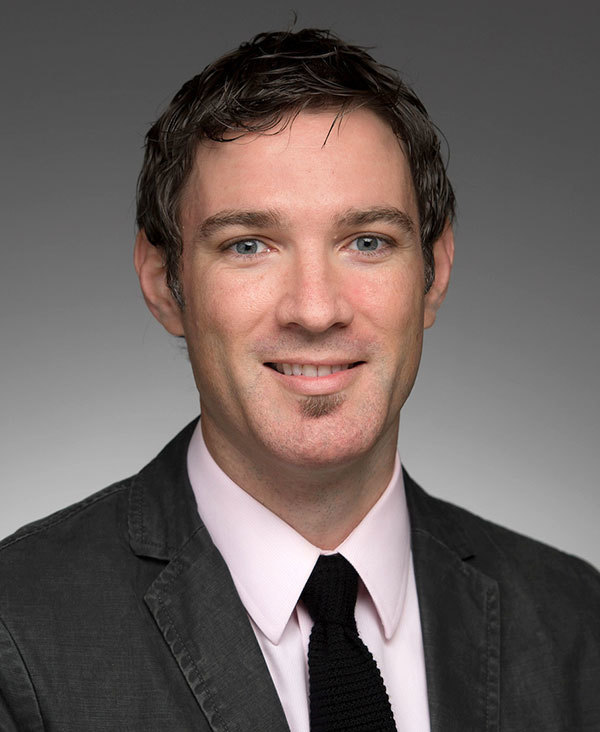 Matthew Payne
Matthew Payne
Matthew Payne will join Notre Dame’s Department of Film, Television and Theatre (FTT) as an assistant professor this fall, bringing research and teaching interests that range from the rapidly evolving field of video games and interactive entertainment to convergent media, new media literacy, media representations of war, and ethnographic audience research.
“One of the core elements that has held my interest in games of all kinds—cards, sports, role-playing, children’s pastimes like hide-and-go-seek and tag—is their ability to capture and hold our collective imagination,” Payne said.
“We know that gaming events aren’t real and yet we so often want to immerse ourselves in those experiences. Gameplay is not unlike losing oneself to a good book, the pulsing rhythms of a concert, or the narrative complexity of a TV series.”
Getting in the game
Throughout childhood, Payne was fascinated by TV, video games, and various technological gadgets, but he didn’t realize until fairly late in his graduate school career that studying video games from an academic and humanistic point of view “was even a thing,” much less a career option.
He majored in philosophy and religious studies as an undergraduate, which helped him see “the cultural complexity and social meanings hiding in everyday objects and rituals.”
“Viewed through the lens of critical theory, toys were no longer just toys; movies were no longer just movies; and games were no longer just games,” he said. “Questions that are central to media studies and to cultural studies—issues of representation, politics, technology, ideology, design, power, identity—are all at play in analog and in digital games.”
Along those lines, Payne wrote Playing War: Military Video Games After 9/11, a book that examines how games like the Call of Duty and Battlefield series “transform international strife into interactive fun."
Payne, who joins Notre Dame from the University of Alabama, is now working on two more book projects. One is a historical analysis of the classic role-playing computer game Ultima, one of the first titles to transport tabletop gaming to the computer screen and to establish conventions for the role-playing genre for decades to come.
The second collaborative project is designed for use in game studies classrooms. Payne envisions it as an accessible teaching tool, fusing important concepts with video games that students can easily access and afford.
Building skills
Payne says his research interests and media production experiences enhance his classroom activities.
“My teaching philosophy is informed primarily by the insights of media literacy, which tells us that there is a complementary relationship between carefully analyzing media and learning to express oneself through media, be it a blog, comic book, documentary film, TV series, or a video game,” he said. “My classes are built around cultivating transferable skills of critical analysis, creative storytelling, and compelling argumentation that students can carry with them no matter where they go in life.”
This fall, Payne will teach a Media & War class, which looks at popular depictions of post-Vietnam warfare and explores how different types of military entertainment produce “narrative, visual, and lucid pleasures” and what those pleasures mean, he said.
Payne will also teach a Transmedia Storytelling course, which examines how storytellers extend their fictional universes and narratives across platforms and, among other issues, “the unpredictable ways that fans re-imagine those same properties.”
The next level
Payne hopes to build interest in the academic study of the world of gaming through an interdisciplinary, university-wide coalition of faculty and students who are interested in all manner of games, from analysis to design to community partnerships.
“I see this as having positive pedagogical and service potential inside and outside of Notre Dame,” Payne said. “Such a group could build relationships across departments, and productively expand what game studies is, as we work together to connect students’ work, be it scholarly or artistic, to the broader South Bend community.”
“I’m excited about joining a university that believes strongly in the transformative power of a robust liberal arts education; the kind of experience that doesn’t tell students what to think, but equips them with skills for how to think. I’m especially excited about joining FTT because it is a energetic department full of passionate educators who are equally invested in helping students become critical thinkers and world-class creators.”
Originally published by Aaron Smith at al.nd.edu on September 14, 2016.